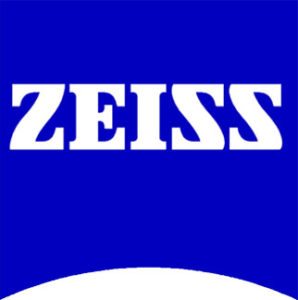News › ZEISS • Planetarium in Korean city of Cheongju
Scientific education center receives new »VELVET LED« projection technology from ZEISS

ZEISS completed the installation of a new »VELVET LED« fulldome video system for the Chungbuk Science Center in the Korean city of Cheongju in September. The science center consists of a planetarium, an observatory and, a large exhibition area with interactive exhibits that focus on science.
Six ZEISS VELVET LED projectors produce fulldome images on the 25 degrees tilted planetarium dome. ZEISS VELVET technology has been fitted to numerous planetariums for a good 10 years. The use of semiconductor light sources is a new feature of VELVET projectors: the LEDs provide a brighter overall display with significantly improved color brilliance. As a result, customers no longer have to worry about paying for regular bulb changes. The exceptionally high contrast for the ZEISS VELVET projectors is also retained with the new LED generation. »The absolutely black background ensures that the starry sky of an analog planetarium projector loses none of its natural brilliance and continues to evoke an emotional response in visitors,« explains Martin Kraus, Head of ZEISS Planetariums. First launched in 2019, the new projectors are now also being used outside of Germany for the first time.
The ZEISS STARMASTER, a planetarium projector from ZEISS, has been used to illustrate astronomical relationships in the 16-meter dome of the planetarium since 2001. In addition to installing the ZEISS VELVET video system, the company also provided technical maintenance of the ZEISS STARMASTER projector. A virtual presentation of the universe has been added to the displays of the traditional planetarium thanks to the new digital projection system – on the basis of scientific data and to enable the possibility of presenting shows and films in dome format. The corresponding software and a selection of current shows on mainly astronomical topics are also part of the scope of delivery from ZEISS. The opto-mechanical starry sky with digital displays is projected synchronously. ZEISS calls this technology »True Black Hybrid-Planetarium«.
»For the Korean education center, the ability to teach sciences is key mission for the future of the young generation of the country,« continues Kraus. »Building on the foundations of science and available to anyone who’s interested, planetariums and interactive exhibitions provide easy access to advanced scientific education outside the school environment.«
About ZEISS
ZEISS is an internationally leading technology enterprise operating in the fields of optics and optoelectronics. In the previous fiscal year, the ZEISS Group generated annual revenue totaling more than 6.4 billion euros in its four segments Semiconductor Manufacturing Technology, Industrial Quality & Research, Medical Technology and Consumer Markets (status: 30 September 2019).
For its customers, ZEISS develops, produces and distributes highly innovative solutions for industrial metrology and quality assurance, microscopy solutions for the life sciences and materials research, and medical technology solutions for diagnostics and treatment in ophthalmology and microsurgery. The name ZEISS is also synonymous with the world’s leading lithography optics, which are used by the chip industry to manufacture semiconductor components. There is global demand for trendsetting ZEISS brand products such as eyeglass lenses, camera lenses and binoculars.
With a portfolio aligned with future growth areas like digitalization, healthcare and Smart Production and a strong brand, ZEISS is shaping the future of technology and constantly advancing the world of optics and related fields with its solutions. The company’s significant, sustainable investments in research and development lay the foundation for the success and continued expansion of ZEISS‹ technology and market leadership.
With over 31,000 employees, ZEISS is active globally in almost 50 countries with around 60 sales and service companies, 30 production sites and 25 development sites. Founded in 1846 in Jena, the company is headquartered in Oberkochen, Germany. The Carl Zeiss Foundation, one of the largest foundations in Germany committed to the promotion of science, is the sole owner of the holding company, Carl Zeiss AG.
Further information at www.zeiss.com
Press Contact
Planetarien
Gudrun Vogel
+49 3641 64–2770
moc.ssiez@legov.nurdug
